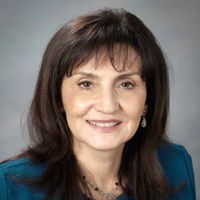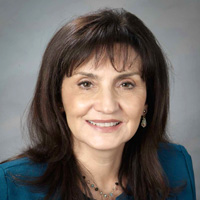How the 401(k)-IRA Rollover Thought Process Works
Every decision has a consequence. From RMDs and taxes to passing on an inheritance, go step by step to make an informed choice.


Profit and prosper with the best of Kiplinger's advice on investing, taxes, retirement, personal finance and much more. Delivered daily. Enter your email in the box and click Sign Me Up.
You are now subscribed
Your newsletter sign-up was successful
Want to add more newsletters?

Delivered daily
Kiplinger Today
Profit and prosper with the best of Kiplinger's advice on investing, taxes, retirement, personal finance and much more delivered daily. Smart money moves start here.

Sent five days a week
Kiplinger A Step Ahead
Get practical help to make better financial decisions in your everyday life, from spending to savings on top deals.

Delivered daily
Kiplinger Closing Bell
Get today's biggest financial and investing headlines delivered to your inbox every day the U.S. stock market is open.

Sent twice a week
Kiplinger Adviser Intel
Financial pros across the country share best practices and fresh tactics to preserve and grow your wealth.

Delivered weekly
Kiplinger Tax Tips
Trim your federal and state tax bills with practical tax-planning and tax-cutting strategies.

Sent twice a week
Kiplinger Retirement Tips
Your twice-a-week guide to planning and enjoying a financially secure and richly rewarding retirement

Sent bimonthly.
Kiplinger Adviser Angle
Insights for advisers, wealth managers and other financial professionals.

Sent twice a week
Kiplinger Investing Weekly
Your twice-a-week roundup of promising stocks, funds, companies and industries you should consider, ones you should avoid, and why.

Sent weekly for six weeks
Kiplinger Invest for Retirement
Your step-by-step six-part series on how to invest for retirement, from devising a successful strategy to exactly which investments to choose.
Approaching 70 in less than a year, my client Cathy — trim, vibrant, silver hair up in a bun — is still enjoying her work and has no plans to retire.
But with that milestone age of 70½ right around the corner — the age when required minimum distributions kick in — she had questions.
Cathy’s family is important to her, and her mind was focused on what to do about her 401(k). She learned by calling her plan’s custodian that there are limitations on how her grandchildren can inherit some of that money. The plan isn’t as flexible as she would like.
From just $107.88 $24.99 for Kiplinger Personal Finance
Become a smarter, better informed investor. Subscribe from just $107.88 $24.99, plus get up to 4 Special Issues

Sign up for Kiplinger’s Free Newsletters
Profit and prosper with the best of expert advice on investing, taxes, retirement, personal finance and more - straight to your e-mail.
Profit and prosper with the best of expert advice - straight to your e-mail.
The plan custodian suggested she might want to move some of her 401(k) funds to an IRA, but Cathy wasn’t sure what that would mean when it comes to taxes for her and the ones she loves. You see, with everything there is a trade-off, a pro, a con, maybe even a string attached. Cathy wanted to know what she was in for.
Advantages of an IRA rollover
On the “pro” side, she would have more choices. She could invest in almost any financial instrument with her IRA funds, including something that might better meet the objectives she had in mind when thinking of her grandchildren. Her 401(k) plan’s options are limited.
She also would be able to create a stretch IRA to benefit the grandchildren. A stretch allows each beneficiary to take distributions based on his or her individual age and life expectancy according to the IRS table.
Cathy liked the idea of providing steady income to help with school expenses, a home purchase and whatever else might come up as her grandchildren got older. She also liked that the IRA would always have her name on it. She truly felt that would be a legacy.
Still, she wanted to know what the trade-offs would be.
Advantages of sticking with a 401(k)
While Cathy works, her 401(k) has some benefits. She can continue to contribute pretax dollars without an age restriction. That part wouldn’t change by rolling some of the account over to an IRA. She would still be able to make those contributions.
More important, as long as she keeps working for her current employer, Cathy is also exempt from taking a required minimum distribution (RMD) on that particular 401(k) when she turns 70½. If she rolled any of the 401(k) into an IRA, that IRA would become subject to the RMD. At 70½, she’d have to take out money, whether she wanted it or needed it. And she’d have to pay taxes on it.
This is a vital consideration — the string attached, so to speak. Cathy feels her work helps her stay healthy, so she plans to keep at it for years to come. Her husband already has Social Security and a pension, and Cathy will start Social Security at age 70. The RMDs would only add to their tax burden, and Cathy wanted to know by how much. She had several questions:
- What would that RMD cost in overall taxes each year?
- Would the extra income raise the percentage of Social Security income that could be taxed?
- Or, if the RMD was small, would it have any impact at all?
RMD possibilities
Cathy also had to decide what she should do with the RMD funds she took from the IRA.
She knew she wanted to earmark the money for her grandchildren, but she would have to determine how to best position the now-taxed dollars to maximize their benefit. She could create a stock portfolio and, as long as she didn’t sell anything, she wouldn’t pay taxes on it. She would have to pay taxes on any dividends earned, but then she could reinvest the money she made. Cathy will want to consider how capital gains might affect her investments before making any final decisions. On death, the stock would receive a step up in basis, and therefore would not be taxed to her grandchildren.
Her other option was life insurance. She could purchase a policy into which she would put her RMDs. This would also distribute money tax free to her grandchildren.
Decision time
Ultimately, after going over all the alternatives and their implications, Cathy chose to roll a portion of her 401(k) into an IRA and name her grandchildren as beneficiaries to create the “stretch” for them. She decided to use the RMDs for life insurance to further her legacy goals.
So much in our retirement planning is about more than money. Often our choices reflect our values in life. Cathy decided to face the possibility of additional taxes so she could provide financial security for her grandchildren.
What are your values? What would you have done?
Kim Franke-Folstad contributed to this article.
Profit and prosper with the best of Kiplinger's advice on investing, taxes, retirement, personal finance and much more. Delivered daily. Enter your email in the box and click Sign Me Up.

Nancy Fleming, CFP®, is the president of Fleming Financial Services, based in Gilbert, Arizona. She is an Investment Adviser Representative and licensed insurance professional.
-
 Nasdaq Leads a Rocky Risk-On Rally: Stock Market Today
Nasdaq Leads a Rocky Risk-On Rally: Stock Market TodayAnother worrying bout of late-session weakness couldn't take down the main equity indexes on Wednesday.
-
 Quiz: Do You Know How to Avoid the "Medigap Trap?"
Quiz: Do You Know How to Avoid the "Medigap Trap?"Quiz Test your basic knowledge of the "Medigap Trap" in our quick quiz.
-
 5 Top Tax-Efficient Mutual Funds for Smarter Investing
5 Top Tax-Efficient Mutual Funds for Smarter InvestingMutual funds are many things, but "tax-friendly" usually isn't one of them. These are the exceptions.
-
 Social Security Break-Even Math Is Helpful, But Don't Let It Dictate When You'll File
Social Security Break-Even Math Is Helpful, But Don't Let It Dictate When You'll FileYour Social Security break-even age tells you how long you'd need to live for delaying to pay off, but shouldn't be the sole basis for deciding when to claim.
-
 I'm an Opportunity Zone Pro: This Is How to Deliver Roth-Like Tax-Free Growth (Without Contribution Limits)
I'm an Opportunity Zone Pro: This Is How to Deliver Roth-Like Tax-Free Growth (Without Contribution Limits)Investors who combine Roth IRAs, the gold standard of tax-free savings, with qualified opportunity funds could enjoy decades of tax-free growth.
-
 One of the Most Powerful Wealth-Building Moves a Woman Can Make: A Midcareer Pivot
One of the Most Powerful Wealth-Building Moves a Woman Can Make: A Midcareer PivotIf it feels like you can't sustain what you're doing for the next 20 years, it's time for an honest look at what's draining you and what energizes you.
-
 I'm a Wealth Adviser Obsessed With Mahjong: Here Are 8 Ways It Can Teach Us How to Manage Our Money
I'm a Wealth Adviser Obsessed With Mahjong: Here Are 8 Ways It Can Teach Us How to Manage Our MoneyThis increasingly popular Chinese game can teach us not only how to help manage our money but also how important it is to connect with other people.
-
 Looking for a Financial Book That Won't Put Your Young Adult to Sleep? This One Makes 'Cents'
Looking for a Financial Book That Won't Put Your Young Adult to Sleep? This One Makes 'Cents'"Wealth Your Way" by Cosmo DeStefano offers a highly accessible guide for young adults and their parents on building wealth through simple, consistent habits.
-
 Global Uncertainty Has Investors Running Scared: This Is How Advisers Can Reassure Them
Global Uncertainty Has Investors Running Scared: This Is How Advisers Can Reassure ThemHow can advisers reassure clients nervous about their plans in an increasingly complex and rapidly changing world? This conversational framework provides the key.
-
 I'm a Real Estate Investing Pro: This Is How to Use 1031 Exchanges to Scale Up Your Real Estate Empire
I'm a Real Estate Investing Pro: This Is How to Use 1031 Exchanges to Scale Up Your Real Estate EmpireSmall rental properties can be excellent investments, but you can use 1031 exchanges to transition to commercial real estate for bigger wealth-building.
-
 Should You Jump on the Roth Conversion Bandwagon? A Financial Adviser Weighs In
Should You Jump on the Roth Conversion Bandwagon? A Financial Adviser Weighs InRoth conversions are all the rage, but what works well for one household can cause financial strain for another. This is what you should consider before moving ahead.